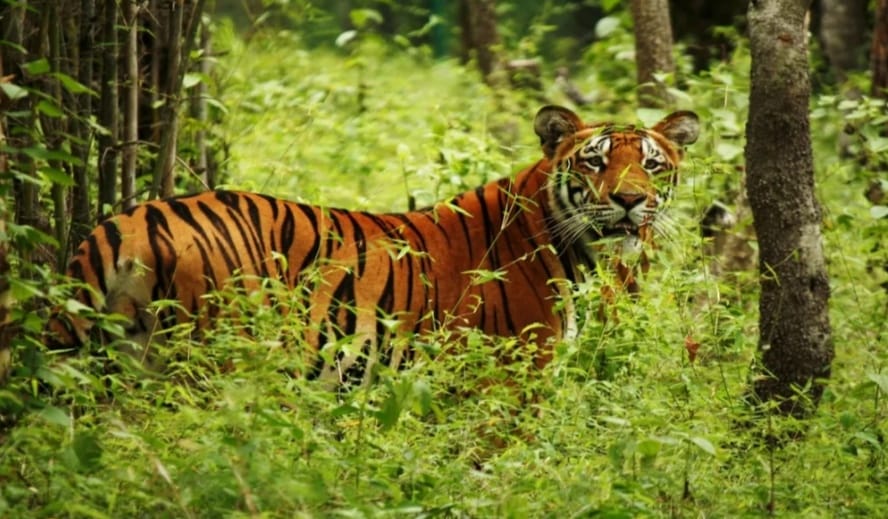
Nestled in Meghauli, Chitwan, the Radha Krishna Community Forest is a vital example of community-led conservation in Nepal. Located near the renowned Chitwan National Park, this forest is part of the country’s larger initiative to engage local communities in sustainable forest management, preserving biodiversity while supporting local livelihoods.
Managed by local user groups, Radha Krishna Community Forest plays a crucial role in conserving wildlife and preventing illegal logging and poaching. The forest is home to a variety of wildlife, including deer, wild boar, and numerous bird species. Occasionally, endangered animals like the one-horned rhinoceros and Bengal tiger, native to the nearby national park, wander into the community forest, heightening its ecological importance.
Beyond conservation, the forest provides essential resources to the local population. Community members sustainably harvest wood, fodder, and non-timber forest products, ensuring their livelihoods are maintained without harming the forest’s health. The forest also generates revenue through eco-tourism, offering jungle safaris, birdwatching, and cultural experiences with the indigenous Tharu community, a vital aspect of the local economy.
Radha Krishna Community Forest is part of a growing global movement emphasizing community-managed resources to address climate change, deforestation, and biodiversity loss. By empowering local communities to take ownership of their natural resources, Nepal is setting an example for sustainable development in fragile ecosystems.
For citizens around the world, Radha Krishna Community Forest illustrates how grassroots efforts can contribute to global environmental goals, while supporting the livelihoods of rural populations. It is a model of how conservation, when driven by the people who live within these ecosystems, can be a powerful tool for sustainability.